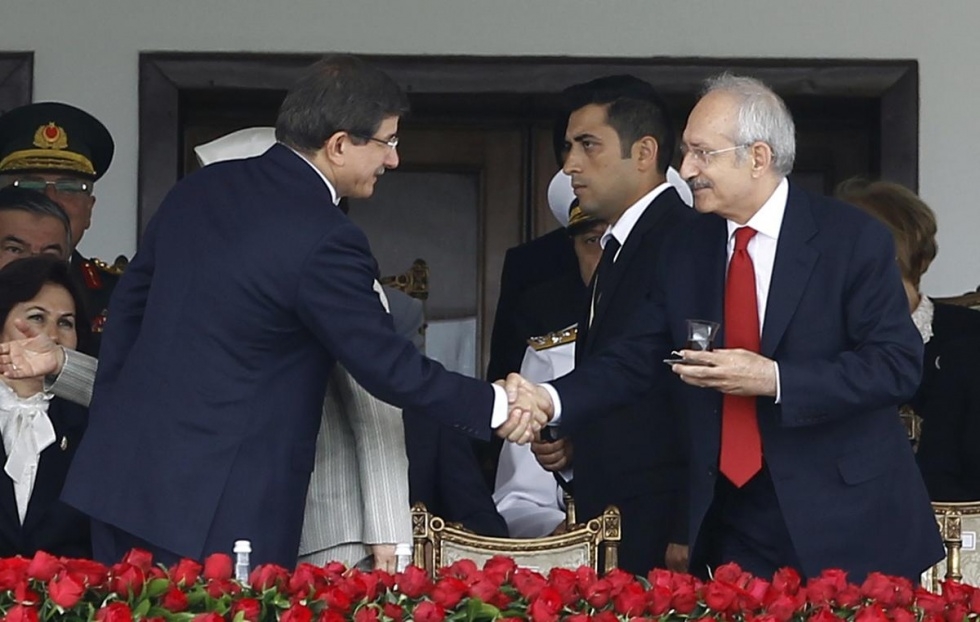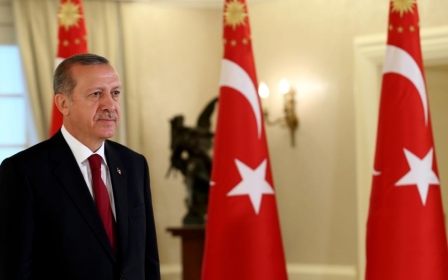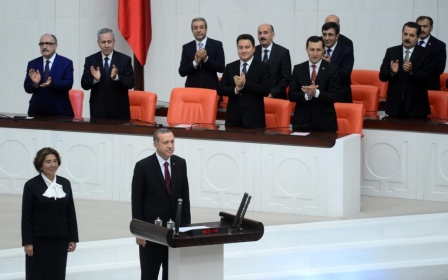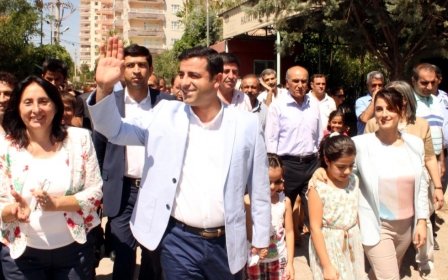Turkey's main opposition party holds soul-searching congress

Turkey’s main opposition party is holding an extraordinary congress Friday and Saturday as the leadership struggle gathers pace.
The Republican People's Party, known as the CHP, is gathering in Ankara Ticaret Odasi Congresium Hall for a vote on the party’s chairman following a disappointing result in the presidential election earlier this month.
Many in the centre-left party disagreed with Chairman Kemal Kilicdaroglu’s decision to field a joint presidential candidate with the right-wing Nationalist Movement Party.
Those MPs were looking for a republican-leftist candidate instead of the non-partisan professor and former secretary general of the Organisation of Islamic Cooperation (OIC), Ekmeleddin Ihsanoglu.
This led to open rebellion following the election when a group of CHP lawmakers called on Kilicdaroglu to step down.
Still, Kilicdaroglu, 65 - who has headed the party since 2010, when the former leader, Deniz Baykal resigned after a video revealing his affair with a female CHP deputy was circulated - is seen as the strongest candidate.
Kilicdaroglu has called for this congress in order to challenge MPs that have opposed his decision to nominate Ihsanoglu, accusing them of constantly criticising the party without working for it, wrote Murat Yetkin, a columnist at the Turkish Hurriyet Daily News.
Kilicdaroglu was elected as Istanbul MP in 2002 and as the chairman at the 33rd Ordinary General Assembly of the party held 22 May 2010.
"The Republican People’s Party is the only political institution that can actually fulfil the ideas of full democracy, the rule of law, human rights, freedoms and the principle of secularism," Kilicdaroglu frequently emphasises.
"We want to express peace, friendship and a sense neighbourhood to the whole world," Kilicdaroglu said.
Challenging leadership
Meanwhile, the deputy group chairman of the party, has announced his candidacy to become party leader.
Muharrem Ince, 50, announced in August that he would challenge Kilicdaroglu to lead the party, which was founded by Mustafa Kemal Ataturk in 1923.
Ince was elected as a lawmaker by his hometown of Yalova in northwest Turkey in 2002.
Ince said he would return the party to power. The CHP, he said, will be the "party of hope."
However, Kilicdaroglu’s chances appear strong: 78 out of 81 provincial party chairmen have declared their support for him, as have the party’s overseas branches.
A total of 1,218 delegates are to vote at 24 ballot boxes during the congress.
To be elected as party chairman, a candidate must win an absolute majority from 1,218 delegates' votes.
More than 900 journalists will follow the congress.
Non-governmental organizations, trade associations and other political parties have also been invited to the congress. At least 46 diplomatic representatives are planning to attend the congress.
At the congress, small changes in the party bylaws will be made.
The delegates will also vote to elect the 60 members of the party's assembly, the supreme body that decides on policy and strategy concerning internal and external developments in line with congress verdicts and election notifications.
“This congress may well be key, a turning point to understand whether the CHP will keep its traditional line for the sake of principles or change with the aim of winning power; or at least pose a real threat to the government as a serious counterbalance in politics,” wrote Yetkin.
To date, the party has held 34 ordinary and 17 extraordinary congresses.
New MEE newsletter: Jerusalem Dispatch
Sign up to get the latest insights and analysis on Israel-Palestine, alongside Turkey Unpacked and other MEE newsletters
Middle East Eye delivers independent and unrivalled coverage and analysis of the Middle East, North Africa and beyond. To learn more about republishing this content and the associated fees, please fill out this form. More about MEE can be found here.




